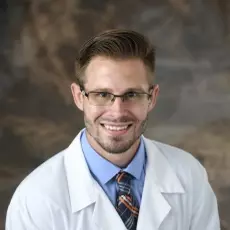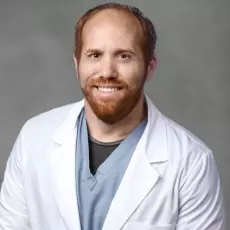
Orthopedic Care That Helps Kids Feel Whole
Helping kids get back to a happy, active and fun-filled life is our wholehearted promise. From sports injuries and complex health issues like scoliosis, dwarfism and bowing legs to cerebral palsy, there’s a team of skilled orthopedic specialists and surgeons ready to support your family with comprehensive kid-focused care at AdventHealth for Children.
Find the right pediatric orthopedic specialist or location that’s convenient for you. To request an appointment, fill out the form or call 407-303-5687.
Comprehensive Orthopedic Care Helping Children Thrive
It takes a village to heal the body, mind and spirit. Our team of orthopedic physicians and surgeons is connected to an extensive local network of physical and occupational therapists, sports medicine specialists and imaging centers to support your child from diagnosis to recovery.
- Bone and Growth Plate Fractures
-
Active kids will sometimes fracture things — including bones. But when a child who is still growing suffers a fractured arm, leg, foot, hand or other bone, specialized care should be provided by a pediatric orthopedist to ensure that the bone continues to develop properly as it heals.
The good news is that kids’ bones tend to heal much faster than adults’ bones do. If your child is experiencing any of the following symptoms, or you just have concerns about an injury, please bring them to the nearest pediatric urgent care or emergency department. It’s always better to be safe than sorry.
Bone and growth plate fracture symptoms can include:
- Chronic or severe pain
- Inability to move or put pressure on the injury
- Noticeable physical deformity at bone
- Cerebral Palsy and Spina Bifida
-
Cerebral palsy and spina bifida are common congenital conditions that cause difficulty moving and getting around. The pediatric orthopedic team at AdventHealth has proven experience offering support, therapy and hope to children and families.
Cerebral Palsy
Cerebral palsy (CP) interferes with a child’s ability to control their movements (motor control) as a result of damage or abnormal development in certain parts of the brain. More than half of all cerebral palsy cases are identified as spastic palsy, which is characterized by very stiff muscles that cause movement to be uncoordinated. Other cerebral palsy types include dyskinetic, ataxic and mixed palsy.
While there is presently no cure for cerebral palsy, treatments are available to help manage the disorder and prevent or correct some of the defects it causes. Treatment requires a multidisciplinary approach and may include mobility aids, braces and anti-spasticity or anti-seizure medications. Surgery may be recommended to address ankle, foot, spine and hip deformities.
Spina Bifida
Spina bifida is a neural tube birth defect that causes abnormal development of the spine, spinal cord, the surrounding nerves and the fluid-filled sac surrounding the spinal cord. It is one of the most common birth defects in the U.S. and occurs when the spinal cord does not fully close during a baby’s development in the womb. The condition can range from mild to severe, with more severe effects including paralysis and bowel problems.
Treatments can help reduce the symptoms and complications of this condition, with new research and clinical trials forging progress each day in experimental fetal surgery and prevention methods.
- Knee and Shoulder Dislocations
-
Knee and shoulder dislocations are the most common joint dislocations among children.
Knee Dislocations
The kneecap (patella) can sometimes slide out of place, resulting in a complete or partial dislocation. Knee dislocations can be caused by a direct, hard blow or an abnormality in the knee that makes it unstable.
Symptoms of knee dislocations can include:
- Pain
- Swelling (inflammation)
- Difficulty moving the knee
- Noticeable change in the appearance of the knee
- Popping sound with movement
- Feeling that the kneecap is sliding out of place
- Feeling that the knee is giving way
Treatment options for knee dislocations may include:
- Manually repositioning the knee
- Bracing
- Physical therapy
Shoulder Dislocations
Shoulder dislocation happens quite often in children, especially when children fall and try to catch themselves by sticking their arms straight out. A direct blow to the shoulder or instability of the rotator cuff can also cause dislocation.
Treatment for a shoulder dislocation will typically include:
- Positioning the shoulder joint back in place
- Sling to stabilize the joint
- Physical therapy
- Surgery (occasionally)
If you suspect your child has dislocated their knee or shoulder, please visit the nearest pediatric urgent care or emergency department.
- Pediatric Rehabilitation
-
Our pediatric rehabilitation program is staffed by caring professionals who are specially trained in a wide range of disciplines, including physical therapy, occupational therapy, speech and language therapy and audiology.
The program is characterized by a family-centric style of treatment, which focuses on your child's unique needs. We work with you and the rest of your family to develop the ongoing skills and strategies needed to ensure successful healing.
- Scoliosis
-
Today, there are many innovative and minimally invasive ways to treat scoliosis. We always start with non-surgical treatments, such as braces and physical therapy. But when surgery is required to correct a spine curvature, we offer the latest techniques in spinal surgery.
The Walt Disney Pavilion at AdventHealth for Children in Orlando is the only children’s hospital in the Eastern United States performing radiation-free pediatric spinal surgery using the 7D Surgical Navigation System. This state-of-the-art technology allows for pinpoint accuracy in placing surgical instrumentation and a minimally invasive approach that avoids large incisions, major scarring and unnecessary damage to healthy tissue layers. It also lessens the possibility of infections and reduces blood loss during surgery — all without radiation.
- Sports Injuries
-
Our orthopedic experts are here to get your child off the sidelines and back into the game. We offer a wide range of services, from physical therapy, rehabilitative medicine, non-invasive treatment and, when needed, surgery.
We also specialize in diagnosing, treating and managing concussions. The AdventHealth Sports Concussion Program is dedicated to treating and preventing concussions in children and adults. Our sports concussion experts are recognized nationally and internationally for their work in this quickly evolving field.
Our teams use state-of-the-art technology, including the ImPACT computerized neurocognitive testing software, a 20-minute test that has become a standard tool in the clinical management of athletic concussions. Our program partners with nearly 20 Central Florida high schools to provide student-athletes with access to advanced concussion diagnostic and management protocols.
Conditions We Treat
- Benign Soft Tissue and Bone Tumors
- Bowing of the Legs
- Cerebral Palsy
- Clubfoot
- Congenital Deformities of the Legs
- Congenital Orthopedic Anomalies
- Dwarfism
- Foot Pain and Foot Deformities
- Fractured Bones and Sprains
- Growth Plate Injuries
- Hip Conditions Including Hip Dysplasia
- Infections of the Bones and Joints
- Joint Contractures and Dislocations
- Knee Pain and Injuries
- Kyphosis
- Leg Length Discrepancies
- Limping in Children
- Metabolic Bone Disease
- Muscular Dystrophy
- Neurofibromatosis
- Neuromuscular Disorders
- Osteogenesis Imperfecta
- Osteonecrosis
- Rickets
- Scoliosis and Spinal Deformities
- Spina Bifida
- Sports Injuries and ACL Tears

In Your Child’s Care, We’ll Be Your Guide
Helping kids feel whole again is what we do. Tell us a little about you and download your free guide to our children’s orthopedic services. You’ll learn more about our innovative facility, the conditions and injuries we treat and our unparalleled network of care.
Meet Your Team

Katerina Backus, MD
Pediatric Orthopedics and Sports Medicine
Multiple Locations

Ernesto Del Valle Hernandez, MD
Pediatric Orthopedics and Sports Medicine
Multiple Locations

Oduche Igboechi, MD
Pediatric Orthopedic Surgery

Sean Keyes, DO
Pediatric Orthopedics and Sports Medicine
Multiple Locations

Raymund Woo, MD
Medical Director, Orthopedic Surgery
Located in Orlando

Matthew Walker, PA
Pediatric Orthopedic Surgery
Located in Orlando
Patient Stories

When Antonio tore his anterior cruciate ligament (ACL), he thought his track and field career was over. But he found hope when he met Sean Keyes, DO, a pediatric orthopedic surgeon at AdventHealth for Children, and heard about the revolutionary bridge-enhanced ACL (BEAR) repair. The BEAR® Implant allows a torn ACL to heal on its own. As a leader in this innovative treatment, Dr. Keyes gave Antonio and his family confidence for recovery. Antonio is back to running track and sees Olympic dreams around the turn.

Jaliyah's mom describes her experience of her child being treated for fibular hemimelia and the support she has with Dr. Maciel, Board-Certified Orthopedic Surgeon. Thanks to the Pediatric Specialists at AdventHealth for Children in Tampa, Jaliyah is playing and doing all the things she loves to do.

When 11-year-old Alexis was told she needed surgery to correct her condition, she was overcome with fear. But that worry soon became hope when she and her family sought care from AdventHealth for Children’s expert orthopedic surgery team. With a care team led by Dr. Raymund Woo, Medical Director of Pediatric Orthopedic Surgery, Alexis received an innovative, radiation-free treatment that helped increase her recovery and healing time.

The strength of a team is in each individual member. When life throws us curve balls they are often difficult to face, but together we can over come anything. Watch the video to learn more about an extraordinary young man's battle with a rare form of bone cancer and how our nationally recognized network of care helped him achieve an extraordinary victory.

Grace's mom shares the journey of her child's diagnosis and how Dr. Maciel's pediatric orthopedic expertise has allowed her daughter to gain the ability to walk.
Q&A with Dr. Keyes: ACL Injuries and the BEAR® Implant
A tear in the anterior cruciate ligament (ACL) is among the most common sports-related injuries. However, treating an ACL tear in kids is very different than treating the injury in adults.
At AdventHealth for Children, we lead the nation in ACL restorations using the BEAR® Implant. The BEAR® Implant is a type 1 bovine-collagen implant that allows the ACL to heal itself, which is preferable for growing athletes.
AdventHealth for Children pediatric orthopedic surgeon Sean Keyes, DO, discusses the role of the ACL for active kids and how the BEAR Implant has changed how surgeons approach tears in the ACL.

The ACL helps us move. The ACL is located at the center of the knee and keeps it stable while planting, pivoting or changing directions quickly.

While surgery to repair a torn ACL isn’t required for normal everyday activities, Dr. Keyes explains why it’s necessary for sports or athletic performance.

Made of bovine collagen, the BEAR Implant creates an environment where the ACL can heal itself. Dr. Keyes explains how the implant promotes the healing and repair of the torn ligament.

Dr. Keyes answers how the two procedures are different, explaining that the BEAR Implant allows for the retention of your own ligament.

There are multiple benefits, as Dr. Keyes explains, including less pain, more muscle strength and more patient confidence in their knee.

The sooner you return to sports, the higher the risk of re-injury. Watch as Dr. Keyes explains more about the stages of recovery and rehabilitation.
Youth Sports and Mental Health Support and Resources
Mental health is just as important as physical health. At AdventHealth for Children, we believe that participating in youth sports is not just about scoring goals or winning championships, it’s also about fostering resilience, confidence, and emotional well-being in our young athletes.
Our team offers a complimentary mental health navigator that can help guide you to the right mental health care and local resources for your child. Our goal is to get your child back to feeling mentally whole again whether that be on the court, at the ball field or simply just back into a normal routine.
Pediatric Orthopedic News and Info

We’re one of only a few children’s hospitals in the country to offer the BEAR® Implant for ACL tears in kids ages 14 and up. Read about this innovative solution from pediatric orthopedic surgeon Dr...





